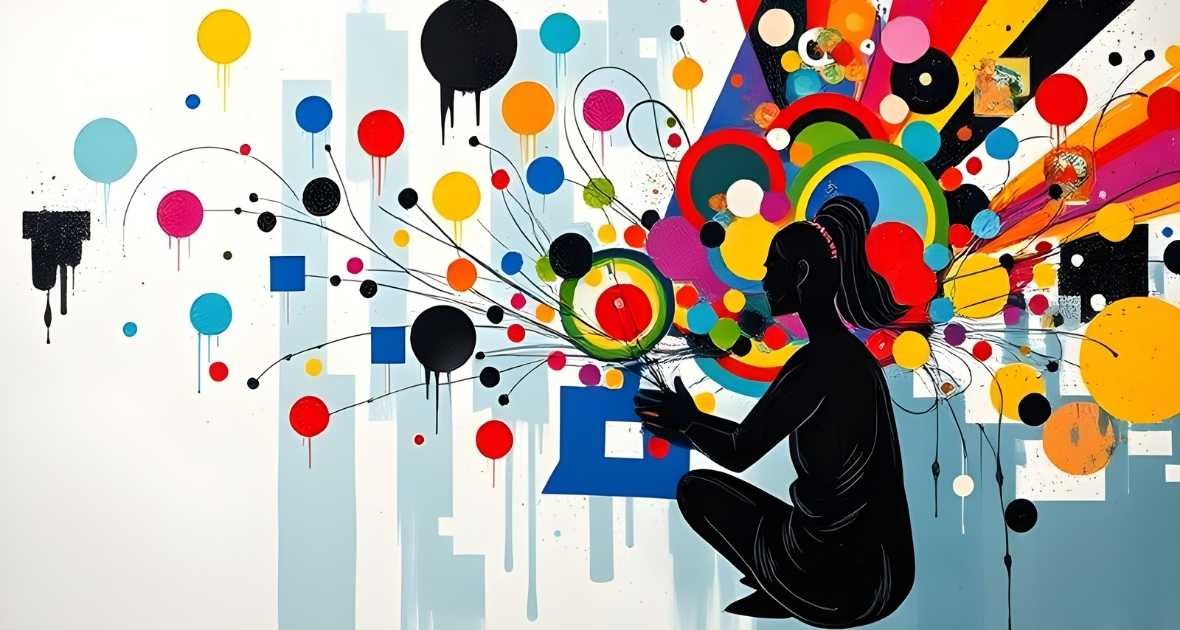Art is often seen as a form of creative expression confined within galleries, canvases, and exhibitions. But what if the lessons learned from art extended far beyond its aesthetic beauty? Engaging with art can transform how we think, solve problems, grow as individuals, and understand the world around us. Whether you’re an artist or a casual admirer, art offers invaluable lessons that shape our lives, develop essential skills, drive personal growth, and deepen our understanding of history and culture.
This blog dives into the profound ways art enriches our lives, offering practical insights and life-changing lessons.
Table of Contents
Developing Skills Through Art
Beyond creating beautiful pieces, engaging with art refines skills essential in daily life and professional settings. Here’s how art helps you grow:
Problem-Solving
Art challenges you. Whether it’s finding the right medium for a piece or solving design conflicts, artistic projects require creativity and critical thinking. These skills transfer to real-life scenarios, enhancing your ability to solve challenges both creatively and practically.
Observation
To capture the essence of what’s in front of them, artists must closely observe. This attention to detail sharpens observational skills, training the brain to recognize patterns, focus on nuances, and appreciate subtleties in the world.
Creativity
Art thrives on innovation and divergent thinking. It allows individuals to explore new concepts and perspectives. This kind of creativity is integral to personal and professional innovation, encouraging out-of-the-box solutions.
Critical Thinking
Decoding the meaning behind an artwork or analyzing its structure requires analytical thinking. Understanding the “why” behind artistic choices encourages the development of critical thinking skills that can help decision-making in all aspects of life.
Discipline and Patience
Creating art isn’t always easy or quick. It often requires hours, days, or even months to complete a single piece. Through this process, you learn discipline, patience, and perseverance, valuable traits that can help you tackle long-term goals.
Personal Growth Through Art
Art isn’t just about improving technical skills. It nurtures the soul and fuels personal development in transformative ways.
Self-Expression
Art provides a platform to communicate your thoughts, feelings, and experiences in ways words often cannot. It’s a safe space to explore emotions and ideas freely.
Confidence
Witnessing growth in your artistic abilities or simply creating something unique fosters a significant boost in self-esteem. Even small successes in art encourage self-belief.
Courage and Resilience
Art often pushes you outside your comfort zone, requiring experimentation with new techniques and bold styles. This act of vulnerability builds resilience and courage, traits necessary for overcoming life’s challenges.
Appreciation for Beauty
Art broadens your perspective, encouraging you to notice beauty in simplicity and find joy in diversity. This appreciation enriches everyday experiences.
Self-Awareness
Engaging with art opens doors to a better understanding of yourself. It allows reflection, offering insights into your emotions, values, and place in the world.
Understanding History and Culture Through Art
Art is often referred to as a snapshot of its time, capturing the stories, values, and emotions of an era. It bridges gaps between cultures, offering insights into humanity.
Art as a Reflection of Society
Each work of art reflects its place and time. From Renaissance paintings to modern street art, these creations speak volumes about societal values, beliefs, and struggles, offering us a deeper understanding of history.
Preserving Cultural Heritage
Art preserves traditions and tells the unique story of a culture. From indigenous ceramics to ancient sculptures, these pieces maintain and honor cultural identity for future generations.
Promoting Empathy and Understanding
Viewing art from different places and times encourages empathy. It broadens your understanding of unique experiences, struggles, and joys that may be vastly different from your own.
Symbolism and Metaphor
Many works of art involve deep symbolism. Learning to unpack metaphors teaches us subtle communication and enriches our understanding of cultural narratives.
Summing It All Up
Art is much more than painting on canvas or sculptures in galleries. It’s a tool for learning, growth, and connection. By honing essential skills such as problem-solving, observation, and creativity and fostering personal growth and cultural understanding, art helps us build better versions of ourselves.
If you’ve never engaged deeply with art, now is the time to start. Whether it’s picking up a paintbrush, visiting a museum, or simply analyzing your favorite painting, there are countless ways to learn from art. Armed with these lessons, you will enrich your life and make meaningful changes in the world around you.
FAQs on Lessons from the Art
Can I learn valuable skills from art even if I’m not an artist?
Absolutely. Art isn’t limited to those who create it. Observing and engaging with art sharpens skills like critical thinking, creativity, and observation for anyone.
How does art boost creativity?
Art encourages exploration and experimentation. It pushes you to think differently, solve problems in novel ways, and approach situations with fresh perspectives.
How does art reflect history and culture?
Art captures the societal values, beliefs, and struggles of its time. It serves as a visual documentation of history and helps preserve cultural narratives.
Why is self-expression important in art?
Art allows individuals to communicate their thoughts and feelings in a raw, unfiltered way. It’s a channel for emotions that can’t always be expressed with words.
Can engaging with art help improve mental health?
Yes. Studies show that creating or observing art can reduce stress, increase mindfulness, and improve emotional well-being.
Is art a skill that requires natural talent, or can it be learned?
While some people may have a natural knack for creating art, anyone can develop artistic skills with practice, discipline, and curiosity.

